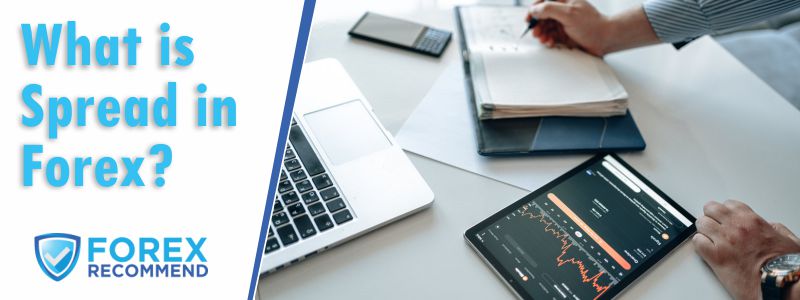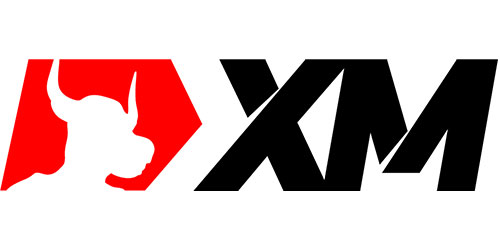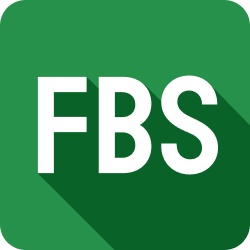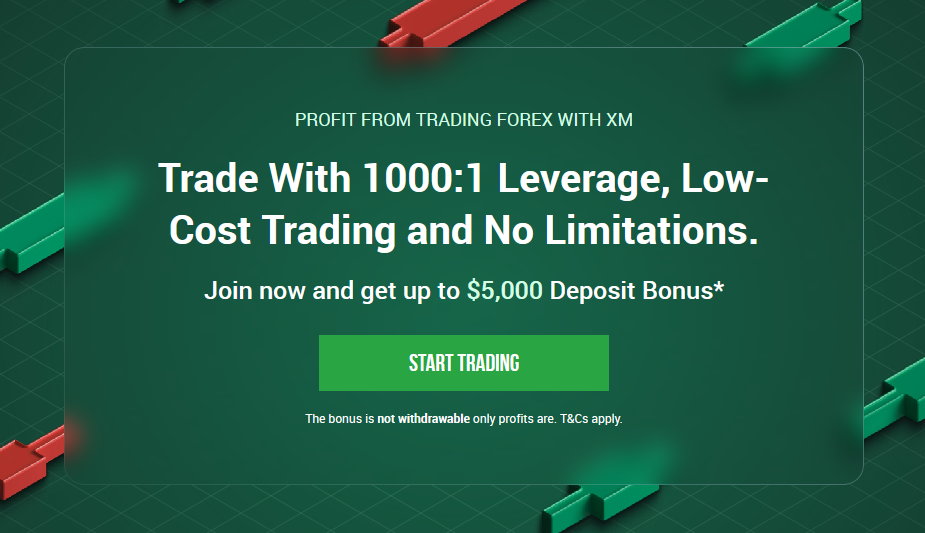
Each financial market has a spread, and it can simply be defined as the difference between the price at which a trader will purchase or sell an asset.
Traders must understand FX spreads since they are the fundamental expense of currency trading.
Top 10 Forex Brokers
Broker
Rating
Regulators
Min Deposit
Leverage
Website
Top 10 Forex Brokers
Broker
Rating
Min Deposit
Leverage
Understanding the methodology used to determine exchange rates is the first step toward comprehending the implications of huge spreads in the foreign exchange market.
The bid price indicates the dealer's willingness to pay for a currency, whereas the ask price indicates the dealer's willingness to sell the same currency.
For example, the buying price on EUR/USD is 1.13398, and the selling price is 1.3404, which means that the difference is .00006. The spread is always indicated in pips, which is the smallest increment with which a price can move, and it is the 4th digit after the decimal, which means that the spread is 0.6 pips.
Why does the Spread change in Forex?
As a result of a variety of factors, including volatility and liquidity, the spread swings in the foreign exchange market.
Spreads will be large in a highly volatile market with low liquidity, while spreads will be narrow in a less volatile market with more liquidity.
For example, major currency pairings such as the EUR/USD will have a narrower spread than emerging market currency pairs such as the USD/ZAR, which will have a wider spread.
Spreads, on the other hand, are liable to change depending on the factors outlined below.
The gap between the buy and sell prices of a currency pair swings in reaction to changes in the spread between the purchase and sell prices of that currency pair. A variable spread is the inverse of a constant spread, and it is used to describe this situation.
When trading forex, you will have to cope with a fluctuating spread consistently.
When a large news release or other event occurs that raises market volatility, the currency spread may expand as a result.
If the spread becomes too large, your holdings may be liquidated, or you may be subjected to a margin call. This is one of the disadvantages of using variable spreads. Keep an eye out for upcoming financial events on our economic calendar, which is updated regularly.
What are the Types of Spread in Forex?
There are two types of spread that traders can expect in forex, namely:
1. Fixed Spread
2. Variable Spread
1. Fixed Spread: Fixed spreads are often provided by brokers who operate on a market maker or “dealing desk” model in the forex market, whereas variable spreads are typically provided by brokers who operate on a “non-dealing desk” approach.
Regardless of how the market is behaving at any one-time, fixed spreads remain consistent. Whether the market is volatile or not, the spread is unaffected, and everything remains the same.
When a broker utilizes a dealing desk, they buy large positions from their liquidity provider(s) and then sell them to individual traders in lower quantities.
This means that the broker is the counterparty to the deals that their customers make.
Advantages of fixed spreads include the following:
- There are smaller capital requirements involved
- Fixed spreads are much more cost-effective for traders who do not have large sums of capital
- When traders use fixed spreads, it is easier to calculate overall trading costs.
- Fixed spreads do not change, meaning that traders can know what to expect when they execute a trade.
Disadvantages of fixed spreads include:
- When brokers offer fixed spreads, traders are more likely to experience requotes because the prices are only coming from a single source.
- The forex market is volatile, and this means that exchange rates fluctuate, which means the broker cannot adjust the fixed spread to accommodate current market conditions. This may result in the trader being blocked from trading until they accept a new price or a requoted price.
- Slippage is another inherent problem that traders face with fixed spreads. The forex market is fast-paced, and this means that the broker may struggle to maintain a consistent spread. This could result in the trader paying a different price than their entry.
2. Variable Spread: Non-dealing desk brokers offer variable spreads. Without the use of a dealing desk, non-dealing desk brokers receive currency pair pricing from a range of liquidity sources and pass these prices on to traders.
This indicates that they have no control over the spreads. Moreover, spreads will widen or narrow according to the currency supply and demand as well as overall market volatility.
When economic data is provided, as well as other periods when market liquidity is limited, spreads typically widen.
Advantages of variable spreads are as follows:
- With variable spreads, there is no risk of requotes because the variation in the spread can accommodate any changes in the price caused by changing market conditions.
- Variable spreads also ensure that traders have access to more transparent pricing, especially because prices are sourced from several liquidity prices.
- The prices are more competitive because the liquidity providers compete amongst themselves.
The disadvantages associated with variable spreads include:
- Variable spreads are not ideal for active traders, day traders, scalpers, or any other traders who rely on tight spreads.
- Variable spreads are not ideal for news traders because they can widen and make a trade look profitable, but there is the risk that the market can turn against the trader at any second.
| Fixed Spreads | Variable Spreads |
| Requotes may occur | There is no risk of requotes |
| Transaction costs are transparent | Can be tighter than fixed spreads |
| There are smaller capital requirements | Market liquidity can be revealed |
| A better option for novice traders | Suitable to more experienced traders |
| Volatile markets do not affect the spread | Market conditions can cause the spread to widen rapidly, especially with volatile market conditions |
| There is a chance that slippage may occur | Slippage is likely to occur |
How to Calculate Spread in Forex
The spread can be defined as the ask price subtracted from the bid price on a specific currency pair. In the earlier example, the spread that was used to show how the spread is calculated is 0.6 pips.
By using this, it means that buying the EUR/USD currency pair will cost 1.3404, and the selling price is 1.13398. This means that once the trader executes the trade, they will incur a spread of 0.6 pips that they must pay.
To determine what the overall final spread cost will be, this must be multiplied by the pip cost while simultaneously considering the total trading volume in lots.
If traders were to trade a 10,000 EUR/USD lot, traders can incur a cost of 0.6 pips x 10,000, which is $0.6. Should the trader trade a standard lot, which is 100,000 base currency units, the spread cost can be calculated as 0.6 pips x 100,000 = $6.
What are the Determinant Factors of Spread in Forex?
- Liquidity
- Volatility
1. Liquidity: The difference between the bid and ask prices can be attributed to a variety of factors. The most evident characteristic of a security is its liquidity.
This is the daily volume or number of shares traded. Certain stocks are traded frequently, while others are traded only a few times.
Stocks and indices with a high amount of trading will have narrower bid-ask spreads than those with a low volume of trading. When a stock has a low trading volume, it is deemed illiquid due to its difficulty in being converted to cash.
As a result, a broker's remuneration for managing the transaction will be increased to account for the increased spread.
2. Volatility: Volatility is another important aspect that influences the bid-ask spread. Volatility is often stronger during periods of rapid market decline or expansion.
The bid-ask spread is often wider at these times, as market participants try to exploit (and benefit from) it.
When the value of securities rises, investors are willing to pay more, allowing market makers to demand higher premiums. When volatility is low, and risk and uncertainty are low, the bid-ask spread is minimal.
Does Spread Change according to Forex Brokers?
Yes, the spread can change between forex brokers.
The spread often indicates the cost of brokerage services for the delivered transactions as well as the trading environment overall.
If the broker's platform experiences high liquidity where orders to buy or sell are intense, the broker can offer tight spreads.
What are the Lowest Spread Forex Brokers?
- CMC Markets
- IG Markets
- FP Markets
- FXTM
- XM
1. CMC Markets
CMC Markets is an online broker that features an extremely long and rich history involved with the provision of comprehensive trading conditions to both novice traders, experienced investors, professional and institutional organisations.
CMC Markets is a London Stock Exchange-listed company that provides beginner traders and experienced traders a wide variety of trustworthy solutions, a large range of tradable instruments, options in retail investor accounts, and a convenient, adaptable mobile trading app.
| PROS | CONS |
| CMC Markets is multi-regulated by reputable market regulators | No PAMM or MAM accounts and no FIX API |
| Client funds are kept in segregated bank accounts with top-tier financial institutions | Spreads are marked-up |
| CMC Markets offers powerful trading platforms offered across several devices | Fixed spread accounts are not offered |
| When traders register an account they need not make an initial deposit | Social trading platforms are not provided |
2. IG Markets: IG Markets is a well-regulated ECN, DMA, and STP online broker that has been in business since 1974, providing traders from all over the globe with competitive trading conditions and over 17,000 financial products.
IG Markets offers retail forex traders a choice between a range of innovative trading platforms, retail investor accounts, and a variety of handy trading tools, instructional materials, and research tools and resources.
| PROS | CONS |
| IG Markets is well-regulated by multiple reputable entities | There is a high initial deposit required |
| IG Markets offers over 17,000 financial instruments including leveraged products | |
| There is a choice between retail investor accounts for CFD and forex trading | |
| IG Markets is well-known for its competitive trading conditions, transparent trading costs, and low bid-ask spreads |
3. FP Markets: FP Markets is a well-known Australian ECN, STP, and DMA broker. FP Markets has a long and illustrious history of offering exceptional trading solutions to its clients.
When trading with FP Markets, traders can anticipate competitive trading circumstances such as narrow variable spreads starting at 0.0 pips on the Raw MT4/MT5 Account, cheap fees, and the usage of strong trading conditions that allow traders to trade over 10,000 financial products.
| PROS | CONS |
| Strict regulation through reputable market entities | US Clients are not allowed |
| The broker offers a wide range of tradable instruments across financial markets | Fixed spread accounts are not offered |
| Reputable forex broker with a high trust score that supports various trading strategies | Restricted leverage of 1:30 for EU clients |
| MetaTrader 4 and MetaTrader 5 offered across several devices | Admin fees are charged on the Islamic Account |
4. FXTM: FXTM, founded in 2011, is a well-regulated broker with offices in different jurisdictions, each with its own regulatory and permission.
As part of FXTM's dynamic offering, traders can anticipate some of the tightest variables spreads starting at 0.0 pips on the FXTM Pro Account, minimal fees, leverage up to 1:2000, and a slew of additional features.
| PROS | CONS |
| Well-regulated and multi-asset forex broker with offices globally | US Clients are not allowed |
| Wide variety of financial instruments offered and tight bid-ask spreads | There is restricted leverage of 1:30 for EU clients |
| Multiple account types are offered suited to different types of traders | |
| Commission-free trading is offered on most accounts |
5. XM
XM is a well-regulated and well-established ECN and STP broker that operates in several jurisdictions to provide global traders with the ability to trade in a variety of global marketplaces.
When trading with XM, traders can anticipate flexible spreads as low as 0.0 pips on the XM Ultra-Cheap Account, low fees as low as $1, high leverage as high as 1:888, and a slew of additional features as part of this broker's complete trading options.
| PROS | CONS |
| Well-regulated forex broker suited to different types of retail traders | US Clients are not accepted |
| Negative balance protection offered on all retail investor accounts | Fixed spread accounts are not offered |
| Competitive trading conditions offered with low bid-ask spreads |
What is Spread Betting in Forex Trading?
Forex spread betting allows you to speculate on the movements of a certain currency without trading in the foreign exchange market.
Spread betting refers to a popular strategy when trading in the forex market. It goes along with the use of contracts for difference, also known just as CFDs, and both these instruments are financial derivatives that can be traded.
Because the foreign exchange market is the largest and most liquid in the world, currency trading is popular among both novice and experienced traders.
Spread betting is extremely simple, and this is one of the reasons why people want to do it. There are three crucial components in a spread bet that can be identified, these are:
- The financial instrument's spread
- The direction in which the trade is moving
- The overall size of the bet
You never own the underlying asset when you use a spread betting account. If the market swings in your favour, you will make capital profits; but, if the market goes against you, you can experience loss of capital.
What is the difference between Spread Betting and CFD Trading?
Contracts for difference are derivative contracts that are made between investors and financial institutions. Investors bet on the value of an asset in the future.
Spread betting, on the other hand, lets investors bet on whether the market will rise or fall. People who trade at different prices at different times of the day settle their differences in cash.
If you want to play the forex market like spread betting, you can use CFDs. You can bet on the price of a currency pair change.
As well, you do not own the thing that the thing is based on. If a trader wants to make money, they must swap the difference in the value of a currency pair between the time the trade is opened and when it is closed.
Table of Contents













